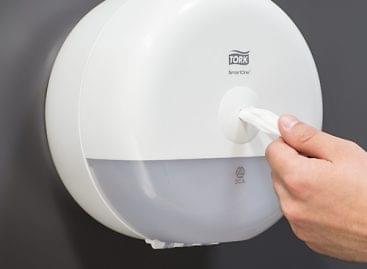Does change really depend on individual actions? – this is what 4 generations think about sustainability
According to nearly 40% of those surveyed, the majority are not willing to deal with climate change because they think it is too far-fetched, according to a recent MediaMarkt survey. From the survey – which examined the attitudes and opinions of the different generations* on sustainability issues – it is also clear that many people’s everyday environmental awareness is exhausted by the selective garbage collection, which anyway they only believe in the idea, not in its effectiveness.

(Photo: Pixabay)
What does sustainability mean? The most diverse answers were received to this question, which clearly reflects how multifaceted the topic is, and in fact everyone has a different understanding of it. For some, “nothing” means nothing and it is a created “fashion word”, but others see it as a “livable environment” and “future”. The difference between the thinking of the generations can be felt from the frequency of mention of certain keywords: for Generation X, sustainability means the environment, the future, recycling, and the protection of nature, as well as conscious decisions. The Y mentioned these concepts with a very similar frequency, but at the same time, consciousness was only the tenth most frequent association for them, and life became the fifth most characteristically associated concept, in the same way as for the Z generation. In addition, they mentioned nature less often, instead, unlike the other generations, they repeatedly indicated that sustainability for them means durability and long-term usability.
Change depends on individual actions
It doesn’t matter which age group we ask, the assessment of the weight of individual actions is almost unanimous. With the exception of baby boomers (10%), 27% of those under 60 say that the change is up to us. The Y and X generations believe that everyone has to do their part and that the change depends only on us. At the same time, regardless of age, most people (40%) believe that even individual actions add up to something, so they see the solution in cooperation and consensus. Without it, change will only happen slowly. A significant difference of opinion is that over 30% of those who would expect a certain level of “superior” intervention, measures at the corporate and government level. According to them, the individual will not be truly responsible until he receives a proper education, or is forced to do so by rules, laws, or conditions. According to them, we will never get ahead without them.
Does selective collection exhaust environmental awareness?
A significant majority of respondents (70%) collect waste selectively, which is not a bad number, but it is clear that there is still room for improvement. Generation Z participates the least in this, but it is worth considering that this generation typically does not yet run its own household. The disposal of electrical and hazardous waste is less popular, but regardless of age, even this was marked by every second respondent as an environmentally conscious activity. Generation X, over 40, can be considered the leader in this (58%). Preference for environmentally friendly modes of transport is more characteristic of younger age groups (Z and Y), one third of those under 39 and only one quarter of those over 40 try to use public transport, bicycles or electric vehicles. Trying to shop with less packaging material is also common (43%) in all age groups, but compared to the average, the X-years are also less active here (36%).
Generation Z is aware, but still a beginner
The age group between 30 and 60 pays the most attention to energy awareness within the household, two-thirds of them pay particular attention to lighting technology, and almost the same number pay special attention to the energy efficiency of the use of kitchen appliances. The conscious reduction of energy consumption (with alternative solutions, energy-saving machines, conscious use of devices, e.g. disconnection) increases with increasing age. Even here, Generation Z, which is less familiar with the subject, does not necessarily have experience with independent households.
Now they sort it out or not?
The idea of recycling is unanimously popular among the respondents, as it also stands out among everyday actions, since we select relatively diligently. However, an interesting question is whether they would do so even if the opportunity was not already available almost everywhere? Nearly half of the Z and X generations are convinced of the importance of the circular economy, while Y is somewhat skeptical about his question; in addition to being fully committed to the idea, he has less faith in its feasibility. Although the majority of them do not claim that sorting is unnecessary, they are no longer convinced that the sorted waste is actually usefully processed in a so-called cycle. And 10% of the baby boomers specifically think that the whole sorting process is completely unnecessary, because in the end they will merge everything anyway.
YES to sustainability, NO to change
Overall, very few people think that climate change is really taken seriously, only 8% of those surveyed think that many people make serious sacrifices for the change. Generation Z is more optimistic than average (10%), and baby boomers are much more pessimistic (2%) on the issue. At the same time, there are also relatively few people who think that we do not care about this danger at all (8%). 37% of the respondents believe that the majority think it is such a distant problem that they are not willing to deal with it. According to another 27%, even those who take it seriously are not willing to give up their habits in order to make a change. If the conditions are right, they try to make a more sustainable decision, but they are rarely willing to make extra effort or sacrifice. There is relative agreement between the generations on this issue.
Baby boomers – the born recyclers
Their presence in the research is not representative, but there are a few things that make it worth looking at them. The general attitude and opinion of the age group over 60 to the issue of sustainability is perhaps best expressed by one of the free-form answers: “it doesn’t mean anything now, it used to be natural”. The basic setting of the age group is saving, repairing things, sewing clothes, recycling food, composting, which could even make them zero waste heroes. At the same time, they find it difficult to change their established habits, most of them collect plastic bags, stumble upon the vegetarian diet and pay attention to energy saving mainly because of keeping costs under control. In fact, younger people are expected to act for their future, they don’t think it is their job to follow a sustainable lifestyle.
Let’s start the BetterWay together!
“We can create big things with many small steps, you just have to start on this path – MediaMarkt launched the BetterWay initiative in this spirit,” says Gábor Szilágyi, Managing Director of Media Markt Hungary. “BetterWay aims to support a more sustainable way of consumption with fair product solutions and service concepts. Our products, certified by international, independent organizations and bearing the BetterWay logo, are more energy efficient, use less water, and are also much quieter. They are made in a more sustainable way and are more durable, they are easy to repair and can be recycled more easily. We strive to achieve our aspirations a little better every day, and we encourage everyone – our suppliers, employees, and customers – to start the BetterWay journey together.”
The pursuit of sustainable operation has always been of particular importance for Hungary’s leading technical department store chain, MediaMarkt, but in recent years, its role in the company’s life has become stronger due to changes in environmental protection, economics, and customer needs and expectations. That is why it became one of the four pillars on which MediaMarkt’s new strategy, introduced last year, is based.
Related news
Bonduelle achieves B Corp™ certification worldwide
🎧 Hallgasd a cikket: Lejátszás Szünet Folytatás Leállítás Nyelv: Auto…
Read more >Generation Z: new rules on the labour market
🎧 Hallgasd a cikket: Lejátszás Szünet Folytatás Leállítás Nyelv: Auto…
Read more >








